A crippling disease: ‘If 10 children get inoculated today, it will save another 10 from catching the virus tomorrow’
So far, around 187 polio cases have been reported from all over the country - 16 of these are from Karachi
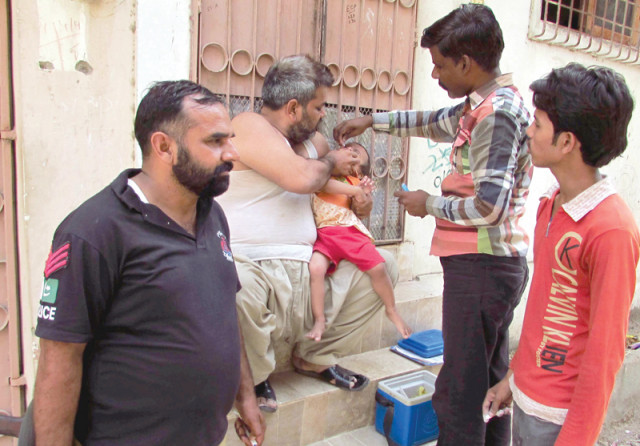
This is how a lady health worker administers polio drops to children under the age of five in the city. The entire procedure takes less than five seconds.
To get to their doorstep, however, can take an entire morning - it requires a lot of coordination, patience and transportation.

This lady was part of one of the many 100 teams inoculating children against polio in the area as part of the three-day National Immunisation Day campaign. She was reporting for duty at UC-11's Natal Dispensary where other polio workers, doctors from the World Health Organisation and the union council's doctor, Dr Shahid, were busy trying to ensure that they had security, vaccines and people to get the job done on day three of the campaign. Standing in line behind baby Khairunnisa was one-year-old Ayesha and her mother. The girl, according to her mother had not received any vaccinations at birth or after till now.
"In the last two years, polio has become a major problem for the country with 187 confirmed cases out of which 16 are from Karachi," said Dr Shahid. "The situation is so bad that sometimes I feel we should just announce a curfew, ask the Rangers to go into peoples' homes and vaccinate their children."
The deputy commissioner of district Central, however, disagrees. Dr Saifur Rehman believes that one way to fight the polio virus is to create awareness. The second, he said, is through effective communication within the community.
Rehman looks after Liaquatabad, North Nazimabad, Nazimabad, Federal B Area and New Karachi and claims that the virus can be eradicated completely if people got their children vaccinated at birth and on time. "So far, only 29 per cent of Sindh is vaccinated, meaning that 71 per cent of the province's population isn't. What people don't realise is that we are sitting on a ticking bomb." He added that due to poor health conditions, poverty and no vaccinations at birth, many children became prone to catching diseases such as polio, TB or hepatitis.
Dr Rehman told The Express Tribune that two cases were reported from his area this year - one from a Gujrati family and the other was from a Pakhtun family. "Polio is not like diarrhoea or a heart disease, it is a disease which spreads through faeces," he said. "If your child has it, mine can too."
Describing what it is like to conduct a polio drive in the city, Dr Rehman said that it was like going to war. "It is an uncivilised way to go about things," he said. "You can't vaccinate a child with a gun in your hand."
Dr Faizan of the World Health Organisation (WHO) has learnt that many parents weren't aware of the problem at hand. "In order to get rid of polio, the community and health officials have to make a collective effort," he said. "At the moment people aren't taking the polio virus seriously. There is a supply for the vaccination but no demand." He added that if one family did not get their child vaccinated it affects the entire neighbourhood.
While polio teams were going around the district vaccinating children, many women also came to the dispensary. A girl in a burqa had brought her niece, one-month-old Khairunisa. The baby's bottom lip was pulled forward as the polio worker squeezed two drops of the vaccine into her mouth.
Another doctor working with WHO, requesting anonymity, said that it was important to try and vaccinate as many children as possible. "This is the only way to beat the virus," he said. "If 10 children get inoculated today, it will save another 10 from catching the virus tomorrow."
According to the doctor, many people don't want to get their children vaccinated during public drives as they don't trust the product available to them. "They want to take their children to a paediatrician," he said. "People want to know if the vaccine kept in the icebox is being kept at the required temperature and the expiration date." He added that in Karachi they were vaccinating children against type I and type III of the polio virus. The vaccines, he claimed, had to be stored between two to eight degrees centigrade. The doctor added that they used the heat marker on the vaccine bottle as an indicator to check if the required temperature was being maintained.
Published in The Express Tribune, October 2nd, 2014.



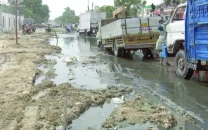
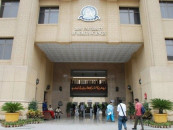
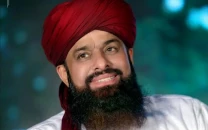
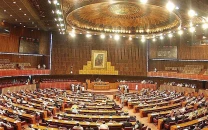




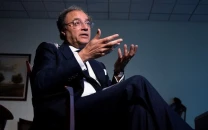







COMMENTS
Comments are moderated and generally will be posted if they are on-topic and not abusive.
For more information, please see our Comments FAQ